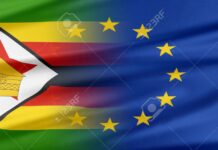The struggle for which liberation? Money and the end of settler political rule in Rhodesia, 1975-1979
Tinashe Nyamunda
In the previous article, I examined the ways in which the Rhodesian economy endured and even prospered in comparison to other south-central African economies such as those of Zambia and Malawi. Whereas the currencies of the two independent former members of the Federation of Rhodesia and Nyasaland collapsed and hyper-inflated, the economy of Southern Rhodesia was relatively more prosperous. Despite some setbacks, it weathered relatively better than its two northern neighbours the impact of the collapse of the Bretton Woods system when American President Richard Nixon took the US dollar off gold in 1971 and the global impact this eventually had on price hikes in 1973.
Among the reasons for the success of the Rhodesian, and South African economy for that matter in the late 1960s and early 1970s despite international ostracism, sanctions and war was the ways in which the two pariahs managed their economies. They utilized strategic alliances confronting their exclusion from international financial arrangements and hedging themselves from the negative impact of global north’s so called economic best-practice systems such as the System of National Accounting (SNA) and its problematic application to African economies. Previous articles have explored how this represented a kind of imperialism of free trade facilitated through UN financial and economic organs which succeeded the decline of European territorial imperialism.
In this article, as I examine the monetary developments between 1975 and 1979 and their effects on the Rhodesian economy, I am also inclined to consider the value of economic knowledge and its legacies as Africans began imagining what independence would look like. Up to 1975, Rhodesian alliances through the Pretoria-Salisbury-Lisbon axis and the well-run Ministerial Economic Coordination Committee (MECC) allowed the close and relatively successful management of the country’s economy. But the conditions under which this management occurred, even if they were not of the Rhodesians’ own choosing necessitated the invention and application of novel ideas. But as the African liberation movements began to gain ground against the Rhodesian regime, one wonders to what extent their focus was just on winning the war. To what extent did they consider what would become Zimbabwe’s inheritance and in what ways they would transform it for the benefit of the downtrodden exploited former black colonial subjects? Even where there was a lot of rhetoric about land reform and creating equal opportunities, how would the incoming government manage this?
The fall of the Salisbury-Pretoria-Lisbon axis
The independence of Mozambique in 1975 opened up real possibilities for actually stretching the Rhodesian regime to its economic limits. Once the Carnation revolution took place in Lisbon in April 1974 leading to the fall of the Marcello Caetano’s Estado Novo regime, making way for the independence of Angola and Mozambique the following year, the axis for the economic and military defense of white rule in Southern Africa collapsed. Following the revolution in Portugal and the independence of Mozambique, the African Front for the Liberation of Mozambique (Frelimo) government of Samora Machel announced its commitment to support the liberation of Zimbabwe. Whereas before 1975, Portugal had used its military capabilities to secure the eastern border for the Rhodesians, Machel opened it up for liberation fighters’ insurgencies. Rhodesians found themselves having to defend themselves on two fronts, from the north and the east. All of this had implications on the country’s financial and economic system.
After 1975, Rhodesian defence spending increased astronomically. Whereas previously, the Rhodesian government had held Zambia to ransom economically and could contain guerrilla infiltrations to some degree from the northern border, the task was much more difficult on the longer eastern border with Mozambique. This required significantly more spending to finance the increasing standing army and its military provisions and operations. But crucially, the attacks on farms along that border increased, leading to many farmers either abandoning or considering to abandon their farming enterprises. This resulted in many disruptions of production in those areas while also leading to high insurance and other defense costs as the Rhodesian government tried to find ways of keeping the farmers on the land. If distressed farmers did not produce, the economy would collapse and without it, the war would inevitably be lost. The only way to finance the war was if, and only if financial resources were available to procure arms, pay the soldiers and provide all necessary supplies.
As call ups increased, the impact on the economy became more significant. This was worsened by the shift in South Africa’s policy towards Rhodesia in the late 1970s. Under the leadership of John Vorster, Pretoria realised that they could no longer continue sustaining Salisbury. Doing so risked the liberation struggle spilling into South Africa. While the African liberation movement was fighting for majority rule in Rhodesia, South Africa had already been granted dominion status to the extent that the struggle of the Africans there was qualitatively different. In South Africa, African political movements such as the African National Congress (ANC) were not seeking independence from a European power as was the case in Southern Rhodesia, but seeking democracy in which they could secure universal suffrage. Vorster figured that if he shifted his approach to Rhodesia and worked with Zambian President Kenneth Kaunda to secure a return to legality in Salisbury, there would not be as much pressure and a spillage of the liberation struggle as there would be otherwise. Consequently, this further weakened Rhodesia as the supply of police patrols and some financial assistance was withheld. The gradual retreat of Pretoria’s support for Salisbury was also another major blow the Rhodesian Prime Minister Ian Smith eventually complained about in memoirs which he titled The Great Betrayal.
With the collapse of the geopolitical ‘axis’ element of the Rhodesian economy, another domino was weakened. Despite the MECC’s efforts, increased defense spending worsened the prospects of white rule in Rhodesia. Under this conditions, the sanctions began to bite. The only alternative that the Rhodesian Front had left was to stretch the war as best as it could in order to frustrate the anti-colonial movements and try to secure terms that could be as favourable as possible for their white landed and propertied constituency. Their strategy, even as a number of negotiations took place, was to delay the agreement for a settlement until what they wanted was attained. As long as the struggle stretched, the African liberation movement also got increasingly frustrated and ended up, arguably pursuing more of a political settlement that would lead them to power than one that would allow a rapid and radical economic transformation agenda.
Political settlement vs. economic transformation agenda
As they pursued this the political settlement, their focus on what needed to change at independence gradually shifted away from the pursuit of transformation towards the maintenance of colonial economic structures even after independence. It is very likely that they fell into this logic unwittingly. I will explore this point here a bit more. In 1983, Benedict Anderson made an important observation in his book Imagined Communities which examined the origins and spread of nationalisms. He argued that the rise of the nation state was a product, both of the collapse of the monarchy in Europe and the rise of liberal democratic ideals that became part of the evolving capitalist system. Assembled in Africa through the process of colonialism, the creation of reading publics through education did not just inform literacy, but the spread of certain and very specific kinds of knowledge in the social sciences. Without delving much into this, let’s examine the specific fields of politics, economics and society.
So, as Hobsbawn recognized in his 1990 monograph examining Nation and Nationalism since 1870, that governance was supposed to be, after the French revolution in 1789, attributed to all people and no longer a product of divine election or hereditary. This concept of nation with its majority rule version, albeit imposed through violence and the product of authoritarian imperial rule, ironically became the inheritance of post-colonial states and became a hall mark of the so-called independent states. And yet, Hobsbawn notes, the link between nation and nationalism was first made by the so called father of capitalism, Adam Smith. His ideas of free-market, self-regulating economy provide the foundations of capitalism and the post-second world war rekindled neo-liberal democracies that succeeded territorial imperialism. I further draw connections to the ways in which these neo-liberal ideas found expression in UN financial and economic organs such as the International Monetary Fund (IMF), World Bank, the World Trade Organisation (WTO), and United Nations Economic Commission for Africa (UNECA), among others. These organisation have shaped the world systems which have sustained neo-colonial relations between industrialised, economically and militarily powerful white nations of the global north which continue to exploit those of the global south in various ways.
Among the ways that continued economic hegemony has been sustained is through what de-colonial scholars have termed the coloniality of knowledge. Unwittingly, African scholars emerging at the dawn of African independence in the 1960s and thereafter fully embraced European education. There were a number of exceptions such as Walter Rodney whose seminal text on the underdevelopment of Africa, Samir Amin and others, numerous academics, many of whom would become technocrats in various areas of governance took up ideological approaches informed by western thought. Many failed to imagine or go beyond nation and nationalism and its connections with specific notions of liberal democracy. They failed to recognize how these ideological foundations ensured, – through by the conditions laid, either as part of independence settlements, or conditions for membership in international organisations as the UN – , a continuation of unfair trade practices and the continued ‘hierachisation’ global currencies and economies.
Socially and politically constructed, the nation was an invented reality serving practical purposes, but once imagined from the perspective of global connections, it becomes something different. Rhodesia had a specific form of nationalism that was a product of both British imperialism and ultimately reshaped by settler interests. But the form it took at a global level was informed by its imperial connections with the United Kingdom and that is what informed their version of nation and white settler nationalism. But the economic survival of white colonialism in the region had transcended the national and became transnational through the axis, and through that, strategic economic military and economic alliances sustained Rhodesia and South Africa. This was crucial to defy international ostracism, sanctions and war. The crucial question was the extent to which the nation would transcend its conceptual confines once under black rule.
Zimbabwe, like other independent African countries needed to have imagined what form their nation would take. But as the struggle continued, the forces of the struggle and input from other parties to the negotiations which included Zambia, South Africa, Britain and the United States all informed the trajectory of the settlement that would be reached at Lancaster. But equally important were ideas about how the nations would be managed. The unfortunate problem was that the concept of the nation state to be inherited was wholly accepted as a true form of what a state should look like. Therein lay the problem. Rejecting only the racial segregation aspect of the Rhodesian state and economy, the new Zimbabwe would accept everything else, including forms of knowledge that were very imperial. Removing the element of UDI exceptionalism and its ostracisation through sanctions and economic exclusion, Zimbabwe would seek to rejoin the community of liberal democratic nations, their institutions and fully adopt their forms of knowledge and the wisdom of what a nation state should be like, even with fractures it would bring.
Michel Foucault in his 1975 classic, Discipline and Punish, discussed what he termed ‘regimes of truth’. In historical studies, truth is a very subjective and fluid concept. To connect it to this discussion, let me make this point. Imperial truth rested on certain kinds of knowledge of politics and economy that allowed their institutions to thrive until they were reconfigured by global changes in the late 1940s onwards. But these imperial ‘regimes of truth’ informed the cognitive and physical domains of Africans who emerged as the educated elite in African countries, including in Zimbabwe. So the forms of knowledge about the economy, for example, became their infallible truths not quite requiring rethinking, decolonization and transformation. The colonial institutions that were inherited, educational, economic, and political and so forth, have remained as part of the epistemic framework of those who adhere to them.
But here is the problem: The dominant economic, political and historical discourses that informed the ontological parameters of the colonial state and society as well as its institutions have endured beyond 1980 in Zimbabwe, as elsewhere in former settler societies. Even in situations where the post-colonial state seeks to critique the legacies of colonialism in our financial and economic system and role of the West in destabilizing the economy, it still follows the same ideas of state, economy and society and reproduces the similar structures and epistemic parameters of those theoretical and conceptual forces it sets out to critique. You will still hear Mthuli Ncube talk about market forces in his fiscal policies, Mangudya regurgitates monetarist solutions to the country’s crisis in his policies and both of them talk about re-engagement in the same context as they do when criticising sanctions and the so called regime change agenda. This is a critical lack of imagination on their part and that of past technocrats since independence.
So why is all this important. This is crucial because, I argue, the Rhodesian government was keenly aware of its need to continuously imagine alternatives. It used its transnational geopolitical connections to navigate sanctions and survive what it termed its economic war. It defied, through various means, including the MECC and smuggling as well as with the support of forces of collusion and despite those of obstruction to produce and endure. They never fell back on some skewed and ill-informed neo-liberal notion of monetary policy, nor a problematic and strict adherence to the reign of fiscal policy and an overdependence on a Minister of Finance. The job was left to the coordination of critical line ministries working within the remit of the MECC and the transnational arrangements made for the survival of the colony. Ultimately, even at the Lancaster House conference in 1979, they were still able to retain a significant degree of leverage that allowed them to secure rights to property on land, among others.
The Rhodesian dollar was nothing more than a signifier. It was a unit of account, means of exchange and store of very well coordinated managed value! But it was never the main focus of policy. Money in itself was quite peripheral. The target was production and consumption. A very critical balance had to be kept, and the role of the MECC was to ensure that all of the elements of the Rhodesian economic were kept in just the right place to perform their respective roles in insuring that everything continued to function properly. No one really knew who the Reserve Bank governors were, starting with Noel Bruce (1964 and 1976), or his successor, Desmond Krogh (1976-1983). Even if John James Wrathal was Minister of Finance (1964 and 1978) and succeeded by David Colville Smith (1976-1979), they were never quite as centrally prominent as was Gideon Gono and is Mthuli Ncube today. If anything, Wrathal was actually largely known to be the ‘quiet man of Rhodesian politics’, doing his work more in the background than at the forefront.
In summation, among the problems of the Zimbabwean economy are those to do with what an economy actually is. Where the Rhodesians were expected to collapse at UDI with their expulsion from sterling by Britain, the imposition of embargoes and other sanctions, they re-imagined what a currency should be like. Ultimately, money was just a simple signifier of the operation of the economy and nothing more. Instead of focusing just on Reserve Bank tinkering through monetary policies or making messiahs out of their Ministers of Finance, the collective efforts of the MECC were spent on focusing on what mattered, that is production and securing whatever markets they could through like-minded allies and transnational networks. They were forced to consider novel and alternative frameworks of economic management quite different from those followed by many independent African countries that ultimately descended into hyperinflation by the mid-1970s.
It is this critical lack of imagination and failure to adapt that I argue has been at the centre of Zimbabwean economy making and failure. In the end, the politicians who were tasked with managing transition and establishing an economy for black Zimbabweans have, in their failure, also incorporated a worsening culture of corruption and state capture which resulted in the collapse of the Zimbabwean economy, and which successive officials have failed to remedy. Unless a critical re-imagination and rethinking in the politics and economy of Zimbabwe is accommodated, then any sought after breakthrough will remain nothing more than an unattainable aspiration. Zimbabweans will either have to push for change, or as the early 2000s jingle encouraged, rambai makashinga (continue to endure)!
- Tinashe Nyamunda is in the African Modernities Past and Present Research Group at North West University (South Africa) where he is Associate Professor of Economic History












